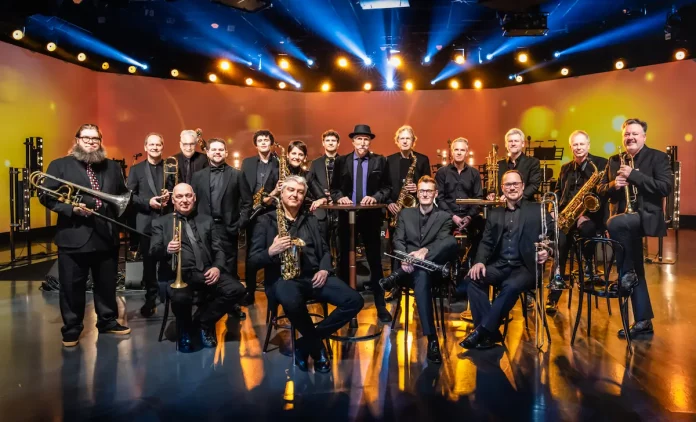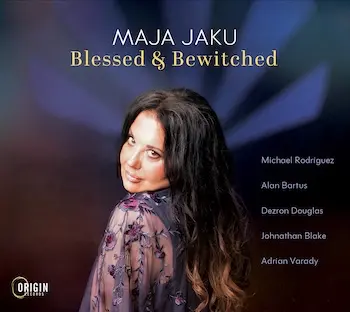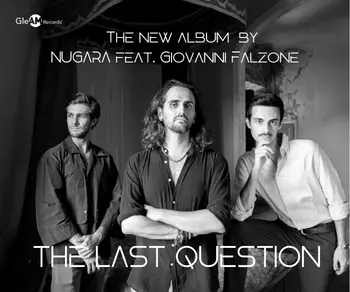With the centenary of Oscar Peterson’s birth coming up 15 August, we’re seeing a welcome programme of LP reissues on 180-gram vinyl (virgin vinyl, no less, it says on the stickers on the covers) in limited editions of 500. The latest two to come my way are Pastel Moods and Romance: The Vocal Stylings Of Oscar Peterson, each housed in covers bearing 1950s designs featuring photographs of very presentable young women, a practice that went on well into the 1960s, notably the Fontana series (issued as Popular Jazz Series, Jazz Club Series or, in France Plaisir du Jazz) which always spotlighted a model against a backdrop of a big close-up of the relevant bandleader. This may have been an indication of whom the record companies envisaged as their target audience – cool, sleek young guys listening to hip (or hep) LPs on their new hi-fi radiograms and pouring fashionable cocktails or rosé wine for their companions. Part of the reason for this meditation is the introduction of the original liner notes (unsigned) on Pastel Moods.
Oscar Peterson: Pastel Moods (Pan Am Records 8 436539313618)
The anonymous author of said notes questions why an artist’s appearance should influence our response to their music, then goes on to describe Peterson as “a mammoth of a man”. The point they are making is that Peterson’s touch is “gentle and caressing” – a characteristic that they wanted to emphasise in the relaxed, pastel-hued music here. Anon was right about Peterson’s playing here though. There can never be any doubt about his technical capacity, but he keeps the virtuosity on a tight rein, instead impressing by the elegance of his phrasing and the richness of his chords.
As you’d probably expect, the tunes are taken from the good old Great American Songbook but given fresh, affectionate and never clichéd readings. Side 1 was recorded in Los Angeles, 26 January 1952, with Irving Ashby on guitar and Ray Brown on bass; side 2 dates from 27 April 1954 and was cut in New York, with Herb Ellis replacing Ashby. Side 2 includes a second version of These Foolish Things, a bonus track not on the original LP release.
All the tracks are fairly short (mostly around the three-minute mark, which you would expect in the days of 78s) and sometimes I wished they would spread their enchantment a little longer, but it’s good to get so many classic tunes on an LP.
The sprightliest track is Sweet Lorraine from the 1954 session, the lushest (with a rather disruptive cadenza-like conclusion, which in the context of Peterson’s usual approach would hardly be noticed) is Unforgettable. Both songs were, of course, associated with Nat King Cole, whom Peterson greatly admired and on whom he firmly based his singing style, which is heard on that bonus version of These Foolish Things. This brings us to…
Oscar Peterson: Romance – The Vocal Styling Of Oscar Peterson (Waxtime 772370)
Recorded in various locations on various occasions in 1951-1953 with guitarist Barney Kessel (apart from two tracks with Herb Ellis) and bassist Ray Brown, this is another cornucopia of GAS standards. There’s a greater variety of moods and tempi than on Pastel Moods but, throughout, the warm and mellow quality of Peterson’s voice imparts an urbane and intimate consistency. Again, his piano technique is held in check to some extent during the vocals, although there are still plenty of lively solos and accompaniments that make you smile with delight. A couple of the tracks cut in New York in 1953 suggest the piano had been wheeled into the next room but this gives them an additional atmospheric quality which I found strangely beguiling. Weird, eh?
WDR Big Band: Bluegrass (MCG Jazz MCGJ1061)
Over the last few decades there have been several fusion movements, from punk to classical and various points between (most recently hip-hop and associated genres) but I don’t recall encountering a jazz-bluegrass fusion, apart from, arguably, some of the great Bill Frisell’s Americana projects. In fact, the alien elements on this album are so well-integrated that only the most inflexible jazz purists would have anything to be picky about. With jazz it ain’t where you get your material from, of course, but where you take it to.
There are a couple of traditional songs here, the rest are by WDR Big Band leader and arranger Bob Mintzer and guest bluegrass soloists Mike Marshall (mandolin and guitar) and Darol Anger on violin. To my ears there is a strong Celtic feel at several points in the session, which is fine by me.
The WDR Big Band performs with its usual panache and virtuosity as an ensemble and there are fine solos from various members (including Bob Mintzer on tenor) and the two guests. At no point is there any sense of straining to accommodate the two genres – the band and guests make it sound as if the they were made for each other, which is quite an achievement. Yet again Duke Ellington’s maxim is proved right: there are only two kinds of music: good and bad. After my initial raising of eyebrows at the idea I judged the project a triumphant success.




